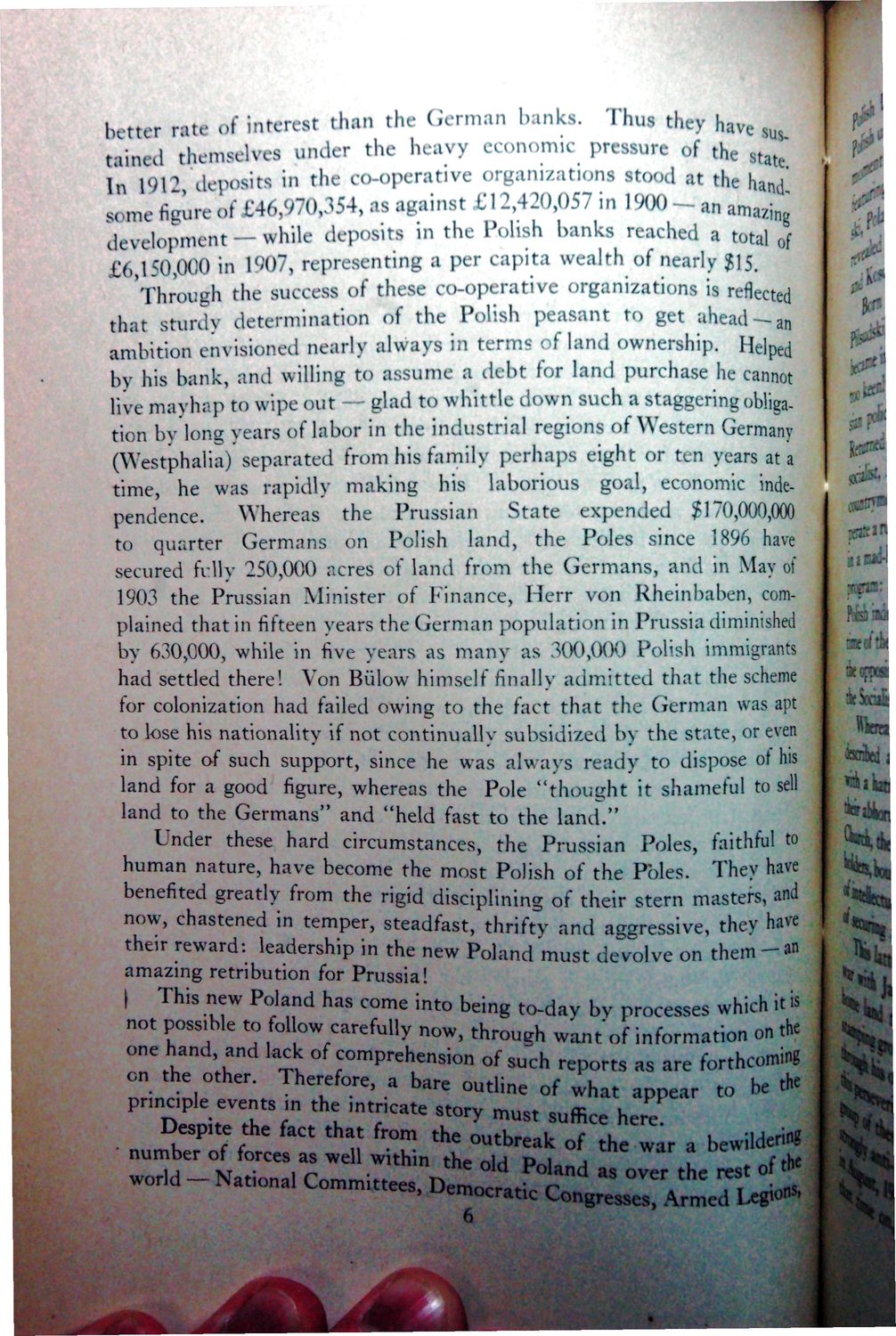| |
| |
Caption: War Publications - WWI Compilation 1923 - Article 24
This is a reduced-resolution page image for fast online browsing.

EXTRACTED TEXT FROM PAGE:
better rate of interest than the German banks. Thus they have sUs tainul themselves under t h e heavy economic pressure of the state In I 9 P deposits in the co-operative organizations stood at the hand' cure of £46,970,354, as against £ 12,420,057 in 1900 — < amazmg m while deposits in the Polish banks reached a total of development C £6*L G\000 in 1907, representing a per capita wealth of nearly $15. Through the success of these co-operative organizations is reflected that sturdv determination of the Polish peasant to get ahead ambition envisioned nearly always in terms of land ownership. Helped by his bank, and willing to assume a debt for land purchase he cannot live mayhap to wipe out — glad to whittle down such a staggering obligation by long years of labor in the industrial regions of Western Germany (Westphalia) separated from his family perhaps eight or ten years at a time he was rapidly making his laborious goal, economic indeWhereas the Prussian State expended .000 pendence to quarter Germans on Polish land, the Poles since 1896 have secured felly 250,000 acres of land from the Germans, and in May o f 1903 the Prussian Minister of Finance, Herr von Rheinbaben, complained that in fifteen years the German population in Prussia diminished bv 630,000, while in five years as many as 300,000 Polish immigrants had settled there! Von Biilow himself finally admitted that the scheme for colonization had failed owing to the fact that the German was apt to lose his nationality if not continuallv subsidized by the state, or even in spite of such support, since he was always ready to dispose ot his land for a good figure, whereas the Pole "thought it shameful to sell land to the Germans" and "held fast to the land." Under these hard circumstances, the Pru ssian Poles, faithful to human nature, have become the most Polish of the Poles. They have benefited greatly from the rigid disciplining of their stern masters, and now, chastened in temper, steadfast, thrifty and aggressive, they have their reward: leadership in the new Poland must devolv e on them amazing retribution for Prussia! This new Poland has come into being to-day bv processes which it is not possible to folW carefully now, through want'of information on the one hand, and lack of comprehension of such reports as are forthcoming en the other. Therefore, a bare outline of what appear to be the VV principle events in the intricate story must suffice h ^ . ic.pie events in the intricate sfnrv ~ ere. fr the the » tJ™ *2 T - t b r e a k of the war a bewildering • number of forces as well within t n e oo d P o lT A hY l k P„ a *' I Tf «™u _ Nationali Committees,"Dem !*„•: n :.. n d as over the rest of «*s Legw" • ' ' ' : • o ••• 9* ;•-• u• . » ofe jasan •i«H OKOf'tk «toa 4 I fa 4 m N * fe * & •••I ^ > < * 6
| |